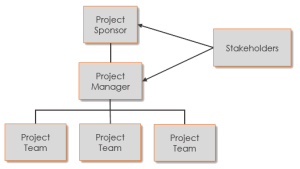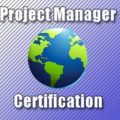
Project Management is a field that spans all other fields.
Although it is true that the project management field contains its own body of knowledge (technical subject matter), you cannot simply pluck a project manager from, say, a construction site, and drop them into a biotechnology research project and expect to receive the same results. Thus, there is an important overlap between the project management and its related technical field which cannot be ignored.
In this article I will differentiate between two types of project managers:
- Professional project managers who don’t associate themselves with a technical field. These project managers have generally obtained a degree in project management and manage megaprojects. They often work on temporary contracts that span only the length of the current project, but the salary is correspondingly generous. Even for professional project managers, a minimal technical background is helpful and the specialization in a technical field helps in securing the next job.
- Technical project managers who have been promoted into a project management role from a technical field and manage projects within that technical field. This includes small and medium sized projects where the technical field and project management activities are so tightly linked that the technical knowledge is invaluable to successful project management. This includes the majority of people who’s job titles are “project manager.”
If you want to become a project manager you need to ask yourself which category you want to fall into.
Education Requirements
If your goal is to become a professional project manager (generally on megaprojects), the career path is alot like other fields. You must choose a degree program in Project Management, attend school for the required amount of time, and apply for project management positions once you have graduated. Nowadays there are many online options which can be done in your spare time. But the quality of programs varies drastically, from online, spare time options to full time degree programs at prestigious universities. And because of this huge divide, the job opportunities are equally as contrasting.
If you are already experienced in a technical field and wish to move into project management, you are like most project managers out there. You don’t need a degree, or a certification, or even experience. It’s pretty simple: If your boss will promote you, or someone else will hire you, into a project management role you will have successfully become a project manager. For small projects a strong technical background is the most important requirement for a project manager.
There are, however, several things you can do to grease the wheels to move up into project management.
- Obtain a diploma/certificate. These can often be achieved in your spare time with many online options available. Most local colleges have classroom and/or online alternatives so you can usually do this locally.
- Obtain a certification. There are several alternatives for obtaining a certification with letters after your name that designate you as a trained project manager. I have described these options below.
Experience Requirements
For professional project management the experience requirement is just like other fields. You can get an entry level job as a junior project manager and over time move up into the senior project management positions.
For technical project managers the experience is an important factor. Not only does your boss want to avoid promoting someone without the necessary technical experience, but I’m here to tell you that you don’t want that either. Being promoted to project manager before you are very comfortable with the technical side is going to lead to bad estimating, poor decision making, lacklustre project communication, and other bad things. You will simply not be doing your career any favors.
If your primary road block is project management experience rather than technical experience, there are a few things you can do to get some experience on your resume:
- Volunteer. Organize a committee meeting, barbeque, or event. These are all projects. Take it from me, if you have to say to an interviewer “I organized a barbeque which is a small project that required excellent project management skills…” you are absolutely correct. Good things happen to those who believe in themselves.
- Get a membership. Although it’s not free, memberships in the Project Management Institute or the IPMA member association in your country, or the like will look good on the resume all by itself. They will send you magazines, local event listings, and things that might help you out even more.
- Get certified. The Certified Associate in Project Management (CAPM) and the International Project Management Associate – Level D are intended for people with no experience. All you have to do is write an exam, and you will have letters after your name that demonstrate project management knowledge.
Certification
Project management certification is a very popular way to show that you are serious about project management. It gives you letters after your name which indicate that you are trained and competent. Here are the three main project manager certifications.
- Project Management Professional (PMP)
- International Project Management Associate (IPMA) levels B or C
- Prince2 Practitioner
Project Management Professional (PMP)
This is the largest and most well known designation with 650,000 designees throughout the world. Issued by the Project Management Institute (PMI) based in the United States, it gives you the initials “PMP” after your name.
To get PMP certified, you need to have a U.S. high school diploma or global equivalent and 60 months (five years) of project management experience during which at least 7,500 hours were spent leading or directing the project. You also need to obtain 35 contact hours of formal project management education prior to taking the exam. The Project Management Body of Knowledge (PMBOK) is the official textbook.
The cost, as of this writing, is US$555, or €465 to write the exam. This does not include the formal education component which can be obtained from a PMI Registered Education Provider (REP) or from a non-approved vendor if you supply a course overview.
The credential maintenance requirements are to obtain 60 Professional Development Units (PDU’s) over each three year period in three categories: Technical, Leadership, and Business Management. The yearly maintenance fee is US$150/year.
To learn more, surf the PMI web site and be sure to read the PMP Credential Handbook.
International Project Management Associate (IPMA)
This designation is issued by the International Project Management Association (IPMA) through member associations in each country. It is these member associations that preside over the certification process, therefore you need to find the association in your country and determine the requirements directly from them. Because those requirements change (even the designations themselves change) I can’t give you exact details that apply in every country.
There are about 150,000 certified practitioners throughout 4 levels of certification. These levels are:
- Level A: Certified Projects Director
- Level B: Certified Senior Project Manager
- Level C: Certified Project Manager (equivalent to PMP)
- Level D: Certified Project Management Associate (equivalent to CAPM)
The letters after your name include the level, for example, “IPMA-C.”
All levels require a written exam. Levels A-C also require an on-site interview with assessors.
To learn more, surf the IPMA web site and be sure to find the member organization in your country.
Prince2
Prince2 stands for Projects in a Controlled Environment. It is administered by Axelos, based in the UK. There are no available statistics for the number of certifications worldwide. Although 1.2 million exams have been taken, the total number of active designations is thought to be less than the PMP (the designation expires after three years if another exam is not taken).
There are three levels of certification:
- Prince2 Foundation
- Prince2 Practitioner
- Prince2 Professional
There are no education or experience requirements. You simply choose the level of certification and register for the exam. The exam tests your knowledge of the Prince2 process which is described in the textbook Managing Successful Projects with Prince2, 2009 Edition. It is not meant to train you to become a project manager in the general sense – only to test your knowledge of the Prince2 process. Therefore, other manuals or training programs are irrelevant.
Prince2 is considered the easiest certification to achieve because of the lack of education or experience requirements. And it does not grant you any letters after your name either. But it can be a good way to demonstrate project management competence to employers and clients.
Salary
According to the Project Management Institute’s Earning Power: Project Management Salary Survey, Ninth Edition (2015), which involved 26,000 respondents in 34 countires (free download from the PMI), the median annual salary across all countries, roles, and experience levels is $81,000 USD. The five biggest factors are:
- Country of employment
- Number of years of experience in project management
- PMP certification status
- Position/role
- Average size of projects managed
The differences from country to country are the biggest differentiator on an absolute basis but do not take into account cost of living differences. The number of years of experience in project management is something you can’t control except to avoid career changes. Thus, the three biggest factors for an aspiring project manager who wishes to increase their salary is to concentrate on the certification status, position/role in the company and average size of projects.
Survey respondents holding a PMP certification indicated a 20% higher salary than those without certification.
The bottom quartile (75% greater than) income was $53,689 USD. The top quartile (25% greater than) was $110,000 USD.
As one might expect, the range by experience level is quite high. In Singapore, for example, entry level project managers reported $47,657 USD and those with greater than 20 years experience reported $131,972 USD, a range of 177%. In the UK, the range was $60,441 USD to $115,276. In the United States, the range was $74,900 to $125,000.
Definition
The Project Management Body of Knowledge (PMBOK) defines a project manager like this:
PMBOK, 5th Edition, Section 1.7, “Role of the Project Manager”
The project manager is the person assigned by the performing organization to lead the team that is responsible for achieving the project objectives. The role of a project manager is distinct from a functional manager or operations manager. Typically the functional manager is focused on providing management oversight for a functional or a business unit, and operations managers are responsible for ensuring that business operations are efficient.
Depending on the organizational structure, a project manager may report to a functional manager. In other cases, a project manager might one of several project managers who report to a program or portfolio manager who is ultimately responsible for enterprise-wide projects. In this type of structure, the project manager works closely with the program or portfolio manager to achieve the project objectives and to ensure the project management plan aligns with the overarching project plan. The project manager also works closely and in collaboration with other roles, such as as business analyst, quality assurance manager, and subject matter experts.
Project Organizational Chart
 The project manager is responsible for the day to day project work. They take responsibility for the success or failure of the project. They perform (or oversee) the planning of the project and implementation of the project management plan.
The project manager is responsible for the day to day project work. They take responsibility for the success or failure of the project. They perform (or oversee) the planning of the project and implementation of the project management plan.
The project manager reports to a person called the Project Sponsor. This person is generally responsible for managing project funding, providing resources and putting the pieces in place that ensure project success. They are often the functional or operational manager that championed the creation of the project and continues to promote it.
Besides the project manager, important elements of the generic project organizational chart are as follows:
- Project Sponsor: Responsible for the project from the organizational perspective. Manages funding for the project, provides resources and serves as a project champion to the organization.
- Project Team: The people who perform the technical project work and produce the deliverables. They report to the project manager.
- Customers/Users: The people who use the project deliverables to improve their lives or work. They are sometimes involved directly within the project in the form of focus groups or test subjects.
- Vendors: The people and organizations the project procures to provide products and/or services to fill technical gaps in the project teams knowledge or ability, or to enhance the quality of the final product.
- Business Partners: The people or organizations that the project owner partners with to fulfill a specific role like installation, training or support.
- Functional Managers: The managers of technical groups (departments) within the owner organization, who often supply technical expertise to the project.
- External Stakeholders: Most project have stakeholders who are affected by the project, like government regulatory agencies, adjacent landowners, and the like.
Roles and Responsibilities
The project manager is the ultimate responsible authority for the successful completion of the project. They are responsible for the initiation, planning, execution, monitoring and closing of the project.
Usually the project manager inherits criteria that the project must work with, such as budget, stakeholder concerns, and so forth. These are codified within the project charter (i.e above the project). But everything else is then planned by the project manager. They create the expectations within the project management plan and must ensure those expectations are met. The project management plan contains the project schedule, budget, stakeholder needs, communication requirements, risk analysis, and anything else that is considered a part of the project plan.
The project management plan is approved by the project sponsor and hence becomes the official project plan.
During project execution the project manager performs monitoring and controlling work such as earned value analysis, quality audits, risk analysis and so forth to ensure the project stays on track. Any deviations from the project plan must be recorded in a change log and re-approved by the project sponsor. This includes the two most important items for most projects, the schedule and budget.
Once the project is complete the project manager must close the project, creating as-built plans, closing contracts and establishing warranties and so forth.
The following are 27 roles and responsibilities of the project manager:
- Writing the project management plan
- Directing and managing project work
- Initiating project changes
- Developing a project budget
- Monitoring the actual spent
- Dividing the project into tasks
- Creating the schedule
- Monitoring schedule progress
- Determining resources
- Procuring resources
- Negotiating contracts
- Determining the project team roles and responsibilities
- Acquiring the project team
- Developing the project team
- Determining the project scope
- Preventing unauthorized scope change (scope creep)
- Identifying stakeholders
- Managing stakeholder expectations
- Communication with stakeholders
- Creating project updates
- Determining quality standards
- Quality control
- Quality audits
- Identifying risks
- Analyzing risks
- Developing risk response plans
- Closing the project
I hope this has been a good overview of how to become a project manager. If you want to develop your technical knowledge prior to taking a certification, be sure try our Project Management Tutorial. Good luck, and definitely let us know in the comments what your experience has been so that we can all benefit.






